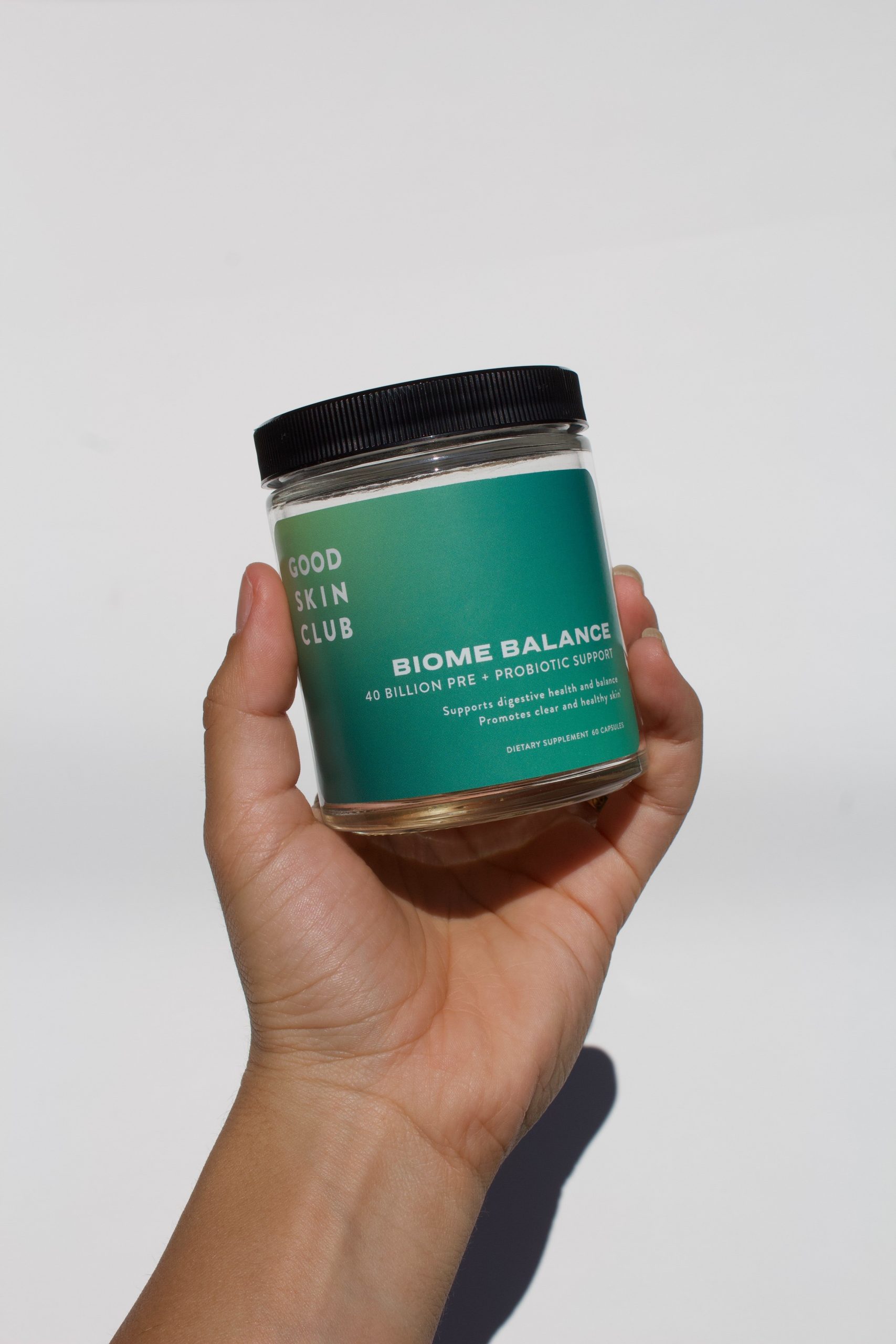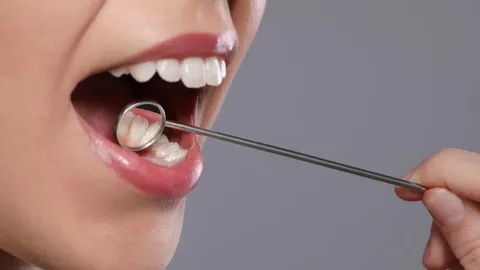health
The Gut-Brain Connection: How Probiotics Can Improve Your Mental Health

Are you aware that the well-being of your gut has a significant impact on your brain health and mood? Recent scientific research suggests that the bacteria living in our digestive system affects our mental state, emotions, and anxiety levels. The good news is that there’s a natural solution to improve your gut-brain connection – probiotics! In this blog post, we’ll explore how these live microorganisms can boost your mental health by promoting good digestion, reducing inflammation, and enhancing cognitive function. Join us as we delve into the exciting world of probiotics and discover their potential benefits for a happier mind and body.
What are Probiotics?
Probiotics are live microorganisms that are similar to the ones already present in your body. When you take them, they help maintain a healthy balance of gut flora. Probiotics have many health benefits, including improving mental health.
There is a strong link between gut health and mental health. The gut is home to a large number of microorganisms, which are essential for good health. These microorganisms play a role in digestion, immunity, and brain function.
Probiotics can improve mental health by reducing inflammation, balancing the immune system, and improving communication between the gut and the brain. Probiotics may also help to reduce stress and anxiety levels.
The Gut-Brain Connection
The human gastrointestinal tract is home to trillions of microbes, which outnumber our own cells by 10 to 1. This microbiome plays a crucial role in our overall health, affecting everything from our immune system to our mood.
Recent research has shown that there is a strong connection between the gut and the brain, known as the gut-brain axis. This means that the health of our gut can have a direct impact on our mental health.
One way that probiotics can improve mental health is by reducing inflammation. Inflammation is linked to many psychiatric conditions, including depression, anxiety, and bipolar disorder. Probiotics can help reduce inflammation by modulating the immune system and producing short-chain fatty acids (SCFAs), which have anti-inflammatory properties.
Another way that probiotics can improve mental health is by regulating the production of neurotransmitters like serotonin and dopamine. These neurotransmitters play a vital role in mood regulation, and imbalances are linked to conditions like depression and anxiety. Probiotics can help regulate neurotransmitter production by interacting with receptors in the gut-brain axis.
If you’re looking to improve your mental health, consider adding probiotics to your diet. Probiotics are live microorganisms that offer numerous health benefits, including improved mental health.
Probiotics and Mental Health
The human gut is home to trillions of bacteria, both good and bad. The good bacteria are important for many bodily functions, including mental health. Probiotics are live microorganisms that are similar to the good bacteria in your gut. They can be found in foods like yogurt and sauerkraut, or they can be taken as supplements.
Probiotics have been shown to improve mental health in a number of ways. They can reduce anxiety and depression, improve memory and cognitive function, and even help with symptoms of PTSD. Probiotics may also help to reduce inflammation in the brain, which has been linked to a number of mental health disorders.
If you’re interested in trying probiotics for your mental health, talk to your doctor about whether they might be right for you.
The Best Probiotic Foods to Eat for Mental Health
Probiotics are live microorganisms that are similar to the good bacteria that already live in your gut. When you eat probiotic foods or take a probiotic supplement, you’re increasing the number of good bacteria in your gut. This can lead to a variety of benefits for mental health, including reducing anxiety and depression, improving memory and cognitive function, and even helping to treat conditions like autism and schizophrenia.
There are many different types of probiotics, and they can be found in a variety of foods. Some of the best probiotic foods to eat for mental health include yogurt, kefir, sauerkraut, kimchi, miso soup, tempeh, and dark chocolate. Probiotic supplements are also available, but it’s always best to get your probiotics from food sources if possible.
Supplements vs. Whole Foods
There is a lot of debate in the natural health world about whether supplements or whole foods are better for you. On one hand, supplements provide concentrated doses of nutrients that can be hard to get from diet alone. On the other hand, whole foods are unprocessed and contain many other beneficial compounds besides just vitamins and minerals.
So which is better for gut-brain health? Probiotics are live bacteria that are good for your gut, and they have been shown to have a positive impact on mental health. However, you can also get probiotics from fermented foods like yogurt, kimchi, sauerkraut, and kefir.
The verdict? Both supplements and whole foods have their place in a healthy gut-brain diet. If you want to make sure you’re getting enough probiotics, consider taking a supplement or eating probiotic-rich foods every day.
How to Incorporate Probiotics into Your Diet
When it comes to probiotics and mental health, the two are interconnected. Probiotics are live bacteria that are essential for gut health, and research has shown that they can also play a role in supporting mental health.
There are many ways to incorporate probiotics into your diet, including eating yogurt or other fermented foods, taking a supplement, or consuming probiotic-rich foods such as kimchi or sauerkraut.
Yogurt is an excellent source of probiotics and can be easily incorporated into your diet. Look for yogurts that contain live and active cultures, and be sure to check the labels to ensure that the product contains at least 1 billion CFUs (colony forming units) per serving. Other fermented foods such as kimchi, sauerkraut, miso, and tempeh are also excellent sources of probiotics.
If you don’t like fermented foods, or if you want a higher concentration of probiotics, taking a supplement may be the best option for you. Be sure to look for a product that contains at least 1 billion CFUs per serving, and make sure it’s been refrigerated to maintain its potency.
Probiotic-rich foods can have powerful benefits for your mental health. Incorporating them into your diet is easy with a little planning. Try adding yogurt or other fermented foods to your breakfast or snack routine, or enjoy kimchi or sauerkraut with lunch
Conclusion
The gut-brain connection is a powerful one and it’s essential to understand how probiotics can work to improve your mental health. Probiotics are beneficial bacteria that are naturally present in the digestive system, and they have been linked to improved cognitive function, mood stabilization and even reduced anxiety levels. With more research being done on this fascinating topic every day, it’s clear that embracing the power of probiotics could be the key to unlocking better mental wellbeing for all of us.
Care
Leukoplakia: Causes, Symptoms, and Treatment for Oral Health

White patches inside the mouth can be worrying, especially when they appear unexpectedly or refuse to go away. Among the most common causes of such patches is a condition known as leukopakia. While it is often harmless, leukoplakia can occasionally signal early signs of more serious problems, making awareness and early detection essential.
Understanding what leukoplakia looks like, why it develops, and how it is treated empowers individuals to take charge of their oral health. This guide walks you through the key facts, symptoms and treatment options, offering clarity and confidence for those who may be noticing unusual changes in their mouth.
What Is Leukopakia?
Leukoplakia refers to thickened white or grey patches that form inside the mouth due to excessive cell growth, often triggered by long-term irritation. These patches may appear on the gums, inner cheeks, tongue, or roof of the mouth. While many cases are harmless, some require monitoring to ensure no further complications develop. Early detection is important because changes can sometimes indicate underlying issues.
Types of leukoplakia:
- Ordinary leukoplakia: Commonly linked to tobacco use and continual irritation.
- Hairy leukoplakia: Associated with viral infections and seen more frequently in individuals with weakened immune systems.
Identifying leukoplakia early helps ensure abnormalities are evaluated promptly and managed before they progress.

What Do Leukoplakia Patches Look Like?
Leukoplakia patches usually appear as uneven, slightly raised areas that feel rough and range in color from white to grey. They cannot be scraped off, which helps distinguish them from conditions like oral thrush. Although generally painless, some people may notice mild sensitivity or irritation, especially when consuming hot or spicy foods. Sudden changes in appearance should be taken seriously.
Warning signs that require urgent evaluation:
- Patches turning red or darkening
- Rapid growth in size
- Increasing discomfort or sensitivity
These changes are often first spotted during brushing or routine dental visits, highlighting the importance of regular check-ups with a dentist or a hygienist in Chichester.
Common Causes & Risk Factors
Leukopakia can be triggered by several factors. Some of the most common include:
Lifestyle-related causes
- Tobacco use: Smoking or chewing tobacco remains the most significant cause, responsible for the majority of diagnosed cases.
- Excessive alcohol consumption: Alcohol irritates the oral tissues and magnifies the effects of smoking when combined.
Irritation-related causes
- Rough or sharp teeth rubbing against the inside of the mouth
- Poorly fitted dentures
- Chronic cheek or tongue biting
Medical and biological factors
- Viral infections such as Epstein–Barr virus
- Weakened immune systems
- Ageing and prolonged exposure to irritants
In some instances, individuals discover leukoplakia when visiting an emergency dentist in Chichester due to pain, bleeding or sudden irritation, even though these signs are not always directly caused by the patches themselves.
Diagnosis: How Professionals Identify Leukoplakia
Diagnosing leukoplakia usually starts with a clinical examination, where a dental professional assesses the affected area, reviews medical history, and asks about habits such as smoking or alcohol use. If a patch persists for more than two weeks, further investigation is required to determine the cause. A biopsy is commonly recommended to rule out precancerous changes, involving the removal of a small tissue sample for laboratory analysis. This quick, straightforward procedure helps identify whether the cells show signs of concern.
Additional diagnostic steps may include:
- Extra testing for hairy leukoplakia, especially if a viral condition is suspected
- Imaging or specialist assessment when needed
- Close monitoring of changes in size, texture, or color
Early diagnosis ensures that any potentially harmful developments are addressed promptly. Routine check-ups with a dental professional or a hygienist in Chichester also support long-term monitoring and early detection of new or evolving patches.
Treatment Options
1. Lifestyle and Habit Changes
The first step in managing leukoplakia often involves removing the source of irritation. This may include:
- Stopping smoking or chewing tobacco
- Reducing alcohol intake
- Improving daily oral hygiene practices
For many people, simply eliminating the irritant leads to noticeable improvement or complete resolution of the patches.
2. Dental and Medical Interventions
If leukoplakia is caused by irritation from a sharp tooth or poorly fitting denture, adjustments or replacements may be needed. Hairy leukoplakia may require medication, especially when linked to viral or immune issues. Sudden discomfort, bleeding, or rapid changes should prompt a visit to an emergency dentist in Chichester.
3. Surgical Treatments
If a biopsy reveals dysplasia or if the patches become particularly large or concerning, removal may be recommended. This can be done through:
- Laser therapy
- Cryotherapy (freezing the tissue)
- Traditional surgical excision
These procedures are typically quick and carried out under local anaesthesia, offering reassurance and protection against further risk.
Can Leukoplakia Turn Into Cancer?
Although most cases of leukoplakia remain harmless, a small number can develop into oral cancer over time. Factors that increase this risk include:
- Red patches mixed with white (erythroplakia)
- Rapid growth of the patch
- Persistent soreness or pain
- A long history of smoking and drinking
This is why regular monitoring is essential. With professional guidance and periodic check-ups, any suspicious changes can be caught early, significantly reducing long-term risk.
Prevention Tips
Good oral health habits are key to lowering your risk of developing leukoplakia. Consider the following preventive strategies:
| Preventive Action | Benefit |
| Quit smoking/tobacco | Reduces irritation and cancer risk |
| Limit alcohol use | Protects oral tissues |
| Address dental issues promptly | Prevents chronic friction |
| Maintain strong oral hygiene | Promotes healthier tissue |
| Attend regular dental check-ups | Ensures early detection |
A balanced diet, hydration and regular cleanings can further help maintain healthy oral tissues and reduce irritation.
When to See a Dental Professional
You should seek professional advice if:
- A white or grey patch lasts longer than two weeks
- There is persistent pain, discomfort or bleeding
- The patch changes shape, size or color
- You are a long-term smoker or drinker and notice new symptoms
Early assessment ensures greater peace of mind and more effective treatment options.
Conclusion
Leukoplakia may be a common condition, but paying attention to changes in your oral health is crucial. While most cases remain harmless, staying aware of symptoms, eliminating risk factors and seeking timely professional advice can significantly reduce complications. With the support of experienced dental professionals and proactive habits, you can maintain long-term oral health and confidence. For reliable care and regular check-ups, you can always count on Chichester to guide you toward better oral health and peace of mind.
Care
Enhance Your Career with the OSHA Industrial Safety Course

Introduction
Safety at work is a need in the contemporary industrial and construction industries which are experiencing rapid expansion. The manufacturing sectors also require skilled workers who are conversant with the international safety measures as well as preventing accidents before they occur. This is whereby the OSHA Industrial Safety Course in Rawalpindi comes in.
United College of Technology is pleased to provide a single and career oriented OSHA course in Rawalpindi that is intended to incorporate the current industry demand and global safety measures. This course is best suited to students, individuals, and organizations that would wish to enhance workplace safety and compliance.
What Is OSHA and Why Is It Important?
OSHA is an acronym of Occupational Safety and Health Administration, which is an internationally acclaimed author that establishes the safety standards in the places of work. OSHA guidelines have been used to minimize workplace hazards, injuries, and in favor of a robust safety culture in industries like:
- Construction
- Manufacturing
- Oil & Gas
- Engineering
- Power Plants
- Factories and Warehouses
Students can obtain real knowledge about rules of industrial safety which are recognized in the world by attending an OSHA course in Rawalpindi.

OSHA Industrial Safety Course in Rawalpindi – Course Overview.
United College of Technology provides the OSHA Industrial Safety Course in Rawalpindi that concentrates on the practical aspects of safety concerns in an industrial setting. The course involves both theoretical and practical studies to make sure that everything is understood.
Key Learning Areas Include:
- Detection of hazards in industries.
- Risk evaluation and management.
- The prevention of accidents at work.
- Safety signs and symbols
- Personal Protective Equipment (PPE).
- Fire and emergency response.
- Safety of electricity and mechanical.
- Standards of health and environmental safety.
The course is an OSHA in Rawalpindi course which is appropriate to both the novice and the already established professionals in need of certification regarding safety.
Why United College of Technology to take OSHA Course in Rawalpindi?
The selection of the appropriate institute is of important concern to quality education and progress of career. United College of technology is among the most reputable technical colleges that provide professional courses in terms of safety in the city of Rawalpindi.
The advantages of studying at United College of Technology are as follows:
- Well trained, professional teachers.
- Industry-relevant curriculum
- On-the-job training model.
- Affordable course fees
- Recognized OSHA certification.
- Career guidance and support
We would like to have qualified safety professionals who are capable of fulfilling both local and international industry requirements.
Career Scope Following OSHA Industrial Safety Course.
On finishing the OSHA Industrial Safety Course in Rawalpindi, students have an opportunity to take different jobs in the sphere of safety in Pakistan and other countries.
Career Opportunities It includes:
- Safety Officer
- Supervisor of industrial safety.
- HSE Officer
- Site Safety Inspector
- Safety Coordinator
- Health and Safety Manager (experienced).
The OSHA-certified professionals are in high demand particularly in the construction work, factories, and multinational enterprises.
Who Can enroll in OSHA Course in Rawalpindi?
The course is an OSHA program in Rawalpindi that is accessible to a large group of learners, and they include:
- Fresh students
- Diploma holders
- Engineers
- Site supervisors
- Technicians
- Factory workers
- Safety professionals
There is no higher education level needed and this is why it is easy to use and accessible to any person interested in workplace safety.
Experiential Training and Industry-Based Learning.
We are of the opinion that theory is not as valuable as practice is at United College of Technology. The OSHA Industrial Safety Course of Rawalpindi has real life case studies, safety drills and analysis of hazards to equip the students with the real work conditions.
Such practical method enables students to be able to use safety regulations with a lot of confidence in their job sites and industrial workplaces.
The importance of OSHA Certification in Pakistan and Europe.
The employers nowadays are attracted to the candidates who have professional safety certification. An OSHA course in Rawalpindi is not only one that is going to enhance your knowledge of safety but also improve your CV and employment opportunities.
The certification of OSHA demonstrates that you:
- Know the international standards of safety.
- Can reduce workplace risks
- Trained to deal with emergencies.
- Appreciate health and safety compliance.
- That would make you a valuable investment in any company.
Conclusion
The industrial Safety Course provided by the OSHA in Rawalpindi by United College of Technology is a good chance to have a good career in industrial and workplace safety. As more industry expands, the need to have professional safety workers is more than ever.
Studying this OSHA course in Rawalpindi you obtain internationally accepted knowledge, practical skills and get better employment opportunities not only in Pakistan but also in the abroad. United College of Technology is the place to begin in case you are serious about safety, professionalism and career development.
Care
Hijama: Benefits and Applications of Cupping Therapy
-
Business3 years ago
Cybersecurity Consulting Company SequelNet Provides Critical IT Support Services to Medical Billing Firm, Medical Optimum
-
Business3 years ago
Team Communication Software Transforms Operations at Finance Innovate
-
Business3 years ago
Project Management Tool Transforms Long Island Business
-
Business2 years ago
How Alleviate Poverty Utilized IPPBX’s All-in-One Solution to Transform Lives in New York City
-
health3 years ago
Breast Cancer: The Imperative Role of Mammograms in Screening and Early Detection
-
Sports3 years ago
Unstoppable Collaboration: D.C.’s Citi Open and Silicon Valley Classic Unite to Propel Women’s Tennis to New Heights
-
Art /Entertainment3 years ago
Embracing Renewal: Sizdabedar Celebrations Unite Iranians in New York’s Eisenhower Park
-
Finance3 years ago
The Benefits of Starting a Side Hustle for Financial Freedom
































